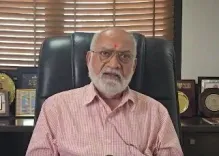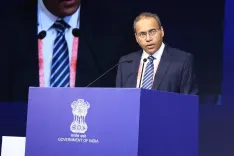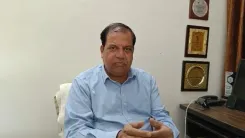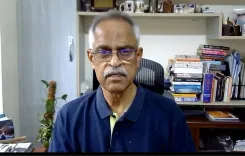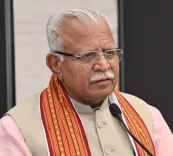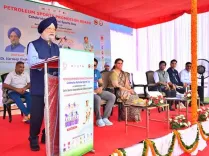Will India Become a Global Powerhouse in Mobile Phone Manufacturing?
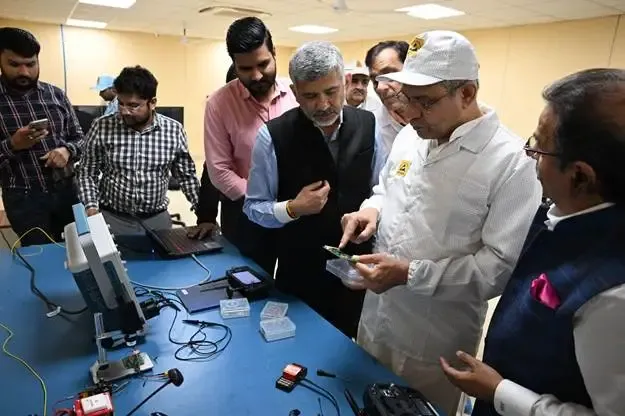
Synopsis
Key Takeaways
- India aims to manufacture all mobile phone components.
- Electronics manufacturing has grown sixfold in 11 years.
- New tempered glass facility represents a leap in local production.
- Government focuses on enhancing R&D capabilities.
- Initiative aligns with the vision of Atmanirbhar Bharat.
New Delhi, Aug 30 (NationPress) India is on a path to establish global-scale capabilities to serve markets with top-notch products. The nation aims to manufacture all components of mobile phones, including chips, cover glasses, laptop, and server components, thereby positioning itself as a significant player in the electronics manufacturing sector, stated Union Minister Ashwini Vaishnaw on Saturday.
The minister emphasized that over the past 11 years, electronics manufacturing in India has surged sixfold, achieving a production value of Rs 11.5 lakh crore, with exports exceeding Rs 3 lakh crore and providing jobs for 2.5 million people. He pointed out that the overall electronics ecosystem in the country is rapidly evolving, with incremental value additions.
During the event, the minister inaugurated India’s first tempered glass manufacturing facility for mobile devices in Noida. This facility, established by Optiemus Electronics in partnership with Corning Incorporated from the USA, will produce high-quality tempered glass under the globally recognized brand “Engineered by Corning.”
The products will cater to both domestic and international markets.
Vaishnaw noted that tempered glass is a crucial accessory for mobile phones, and its local production marks a significant advancement in the success of the ‘Make in India’ initiative and aligns with Prime Minister Narendra Modi’s vision. He also mentioned that a Made in India chip is expected to launch soon, marking another major milestone in the nation’s journey towards self-sufficiency.
He highlighted that India’s design strength is its greatest asset, and the government will continue to enhance research and development capabilities. For instance, a startup incubated at IIT Madras has created India’s first microcontroller, which will soon be utilized in Indian products. Moreover, Indian manufacturers in the Railways sector are already exporting equipment that meets the highest global quality standards to European nations.
Vaishnaw also stated that India’s GDP growth of 7.8 percent in the first quarter of the fiscal year 2025-26 demonstrates that the country is a stable, vibrant, and innovation-driven economy.
He encouraged the youth to work diligently and contribute towards the vision of Atmanirbhar Bharat and Viksit Bharat 2047, asserting that the world looks towards India with high expectations.
Pankaj Mahindroo, Chairman of the India Cellular & Electronics Association (ICEA), remarked that this product segment involves a highly labor-intensive manufacturing process, presenting a tremendous opportunity for India—not just to satisfy its own substantial domestic demand but also to emerge as a leading exporter.

